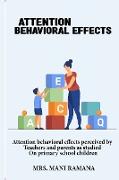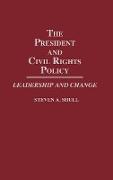Attention behavioral effects perceived by teachers and parents as studied on primary school children
BücherAngebote / Angebote:
The 20th century has been designated as the "Century of the Child" (Winn, 1981). The mental health and well being of the children require our attention as the mental health problems among children are increasing. There is a need to adopt a preventive strategy so that children can develop into healthy individuals. As Mahatma Gandhiji said "If one child is left without education, we cannot claim 100% literacy in another century". Maharishi Mahesh Yogi said about education, "the purpose of education is to make a man orderly within himself, his home, society thereby the whole world". If meditation is practiced, the surrounding areas will have natural control over problems and if every home, every school practice meditation, there will be change in the society, country and the whole world, and the whole world follow India one day. So the remedy for an aggression free society is the practice of meditation by elders and introducing it in schools as part of curriculum. During developmental stages like early childhood, late childhood, puberty or preadolescence and adulthood an individual requires certain types of special attention from the family, neighbourhood, school, peer group etc. (Ramarao 2002), according to him If many of these needs are unfulfilled children may develop certain behavioural and psychological problems such as bed-wetting, nail biting, hair pulling, truancy, stealing, lying, temper tantrums, aggressiveness and lack of interest in work. The child's first contact with the world outside the home is the school. It is a major socializing institution for any child. For nearly 12 years the child spends 5 to 7 hours or more each day in school. The school provides one of the important foundation pillars on which the child's personality develops According to McClusky (1999) skills related to emotional intelligence should find
Folgt in ca. 15 Arbeitstagen




